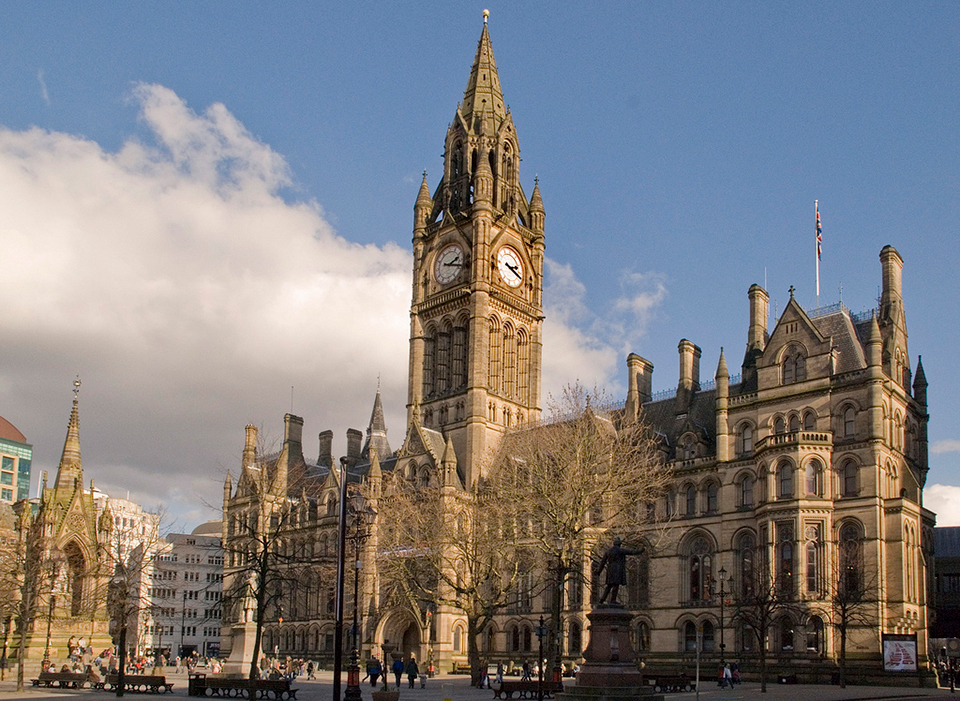The role and participation of citizens in local decision making is at the core of the ‘Jam and Justice’ project at Mistra Urban Futures local platform in Sheffield–Manchester. In 2017, the People’s Republic of Greater Manchester was formed to discuss and re-design the energy provision system in the area, with a particular focus on fuel poverty and climate change. Laura Williams is Global Justice Now’s Manchester-based activism officer and Carbon Coop's Engagement Officer. She supports people taking action on global justice issues in the north of England and is particularly interested in energy transition and clean transition campaigning. Laura previously worked on sustainability campaigns for the National Union of Students. Laura is a member of the Action Research Collective as part of the Jam and Justice Project.
‘Big Six' energy company price hikes, increasing numbers of people forced into energy poverty, market incumbents resisting change and the collapse of Carillion has all demonstrated the illusion of private sector efficiency and market primacy in the energy system – in fact the system is broken, unable to reform and in need a serious re-think!
Whilst there is clearly an appetite for change, a recent YouGov poll showed the majority of the public believe energy provision should be taken back into public hands, some activists question whether a nationalised, top-down market model suits a rapidly changing system and highlight the opportunity to reimagine localised, decentralised public energy ownership, for example with citizens running renewable energy projects and establishing the new localised grid services.
With devolution taking place in Greater Manchester there seemed to be an ideal opportunity to ask what we want our local energy system to look like?
Extending our campaign work on Energy Democracy Greater Manchester, we established the People’s Republic of Greater Manchester in the Summer of 2017 using funding from the Jam and Justice project to resource the work. Their idea was simple: bring together a diverse group stakeholders including climate activists, council officers, energy practitioners, politicians, trade unionists, researchers, co-operative practitioners and policy wonks to co-research and to re-design energy provision in Greater Manchester. The group were particularly interested in the role of workers and citizens participation in decision making and how societal issues such as fuel poverty and climate change could be addressed. Our aim was to put forward a proposal for municipal level energy solutions at GM Mayor Andy Burnham's Green Summit in Spring 2018.
Facilitating a process for participants to effectively share their knowledge, expertise and viewpoint was key to the projects success. As facilitators, we tried hard to create a space where co-researchers could trust in one another, openly share their ideas, learn and collectively devise innovative solutions. We employed an artist facilitator with a background in socially engaged art and local business and used creative engagement tools to encourage collaboration. The group mapped the current energy system, visited the head office of the local distribution network operator, developed case studies of innovative international energy transition projects and took part in an immersive theatrical walk through Manchester’s energy system history. These methods offered an alternative to traditional meeting formats that benefit particular characters and can familiar patterns and instead enabled new voices to emerge.
The project learning was captured in the Energy Futures prospectus in which a future Greater Manchester municipal energy company is imagined over the next 5, 10 and 20 years. We posed the idea that the company would act as vehicle through which energy partnerships and infrastructure projects could be initiated that would radically change the city region’s energy system. There would be a municipally owned electric vehicle charging scheme, renewable generation installations in partnership with community energy groups, a single, fair energy tariff available to all customers and a ‘comfy homes’ energy scheme investing in improving leaky, cold houses.
The vision doesn’t stop at a traditional local authority-run energy company. To us, citizen ownership and control is important to avoid unaccountable decision-making, unresponsive to changing public needs. We feel any municipal energy project needs to incorporate clear channels for citizens decision making that go beyond mere consultation. Inspired by a model used in the municipalisation of Paris' water services company, we believe the first step would be establishing an 'Infrastructure Observatory' where any Greater Manchester citizen could engage with strategic plans, make decisions around future projects and participate in board elections. Otherwise we risk alienating those that actually use energy services.
As planned, the prospectus was launched at the Green Summit, where a key success was the announcement of the establishment of a municipal energy company. Great news for the project though, since the Summit GMCA (Greater Manchester Combined Authority) has chosen to award the development of this company on to a private company that has little on the ground engagement with Greater Manchester citizens. Public participation may therefore be sidelined despite the dialogue that could have continued through the project’s process.
It was recently announced that the GMCA will be establishing a Cooperative Coalition to ensure that Greater Manchester stays at the forefront of cooperative development and the provision of energy services offers the perfect opportunity to explore what this could practically look like. The People’s Republic of Energy project has created a network of individuals ready to participate in this debate all that's needed is the space where that genuine collaborative discussion can continue.
